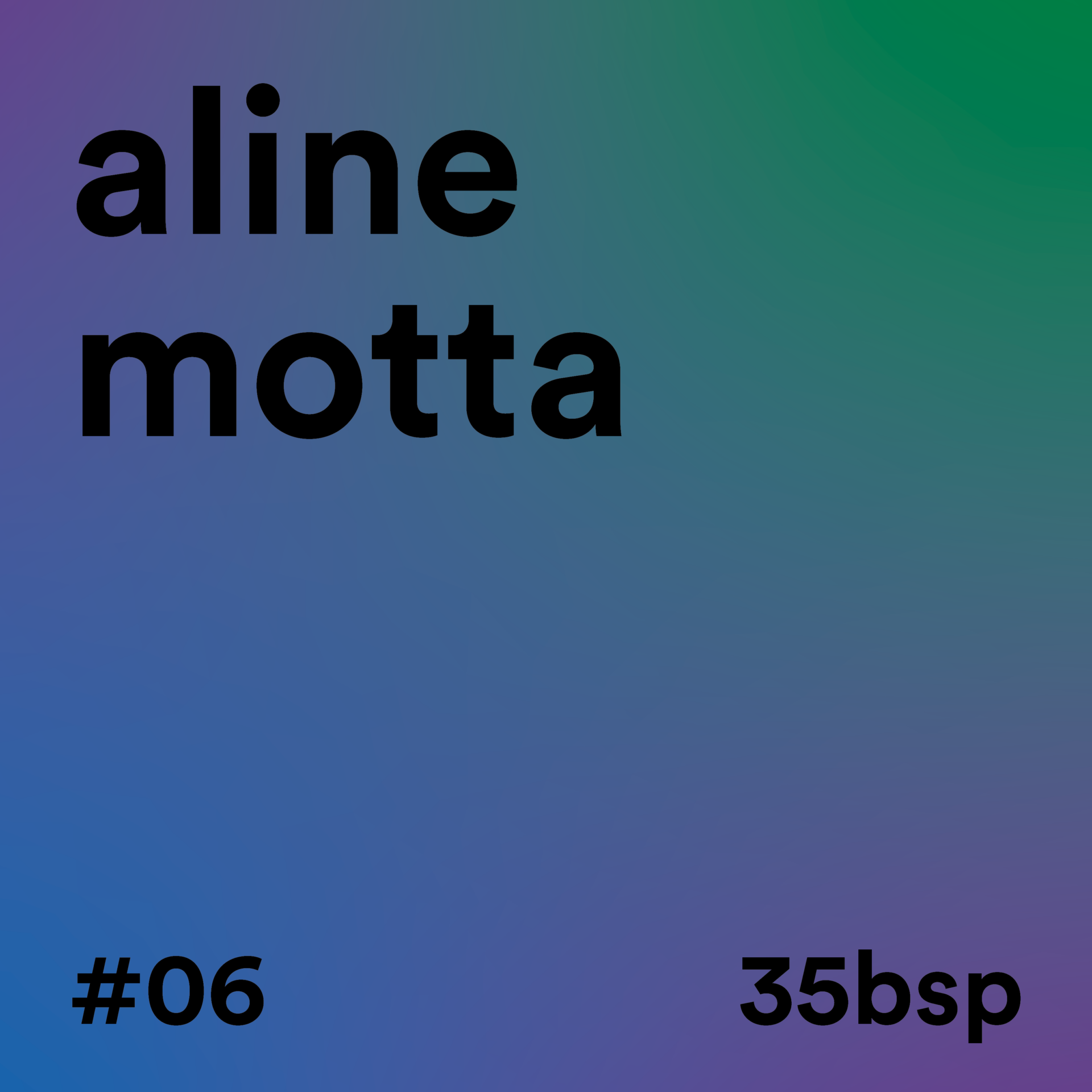
Aline Motta
“I’m pregnant with my mother. It’s my turn to carry you in my belly.”
This is the first sentence of the movie A água é uma máquina do tempo [Water is a Time Machine], by Aline Motta. And it’s not just the movie that presents itself to us, there’s also a large hologram of Aline’s mother. In a black and white image, her mother is sitting on a bench. She is a black woman, about 25 years old. She has her hands resting on her thighs and looks at us tenderly. Her eyes blink and her chest moves slightly as she breathes.
Aline Motta was born in Niterói, Rio de Janeiro, in 1974 and lives in São Paulo. She combines different techniques and artistic practices in her work, such as photography, video, installation, performance and collage. Critically, his works reconfigure memories, especially Afro-Atlantic ones, and construct new narratives that invoke a non-linear idea of time.
In one of her provocations, the artist asks us: “If I break the silence, what identities become possible? What can surface when I’m looking for myself? Among the whispers of those who came before me, the spaces that were prevented from being occupied, the narratives that were blurred, what remains as a possibility of expression and language?”
In A água é uma máquina do tempo, Aline Motta composes a fluid mosaic from historical records and weaves an intricate network of different temporal planes. On this journey, she goes through the sadness of losing her mother until she arrives in Rio de Janeiro at the end of the 19th century. She passes through documentary fragments that meticulously resurrect the experiences of Ambrosina and Michaela, her ancestors.
Uniquely combining creativity and research, Aline Motta reveals the various ways in which colonial heritage blurs our historical narrative. Ricardo Aleixo says of the text that gave rise to the film: “In her quest to give form to this attempt to capture the perhaps inexpressible – the empty spaces, the cracks, the creases, the invisible links, the hidden corners of history – Aline presents us with a work that, in her own words, is the result of a creative process so passionate and exhausting that it could easily be categorized as a kind of mastery.”
In the 31-minute color film, Aline evokes current and historical images of Baía da Guanabara. She walks like a ghost through the historic center of Rio de Janeiro, past the city’s historic churches, to the São João Batista cemetery and then to the Lapa arches. Past and present meet in letters and notes, in the whispers of ancestral languages, between the paths that the water takes.

 Português
Português